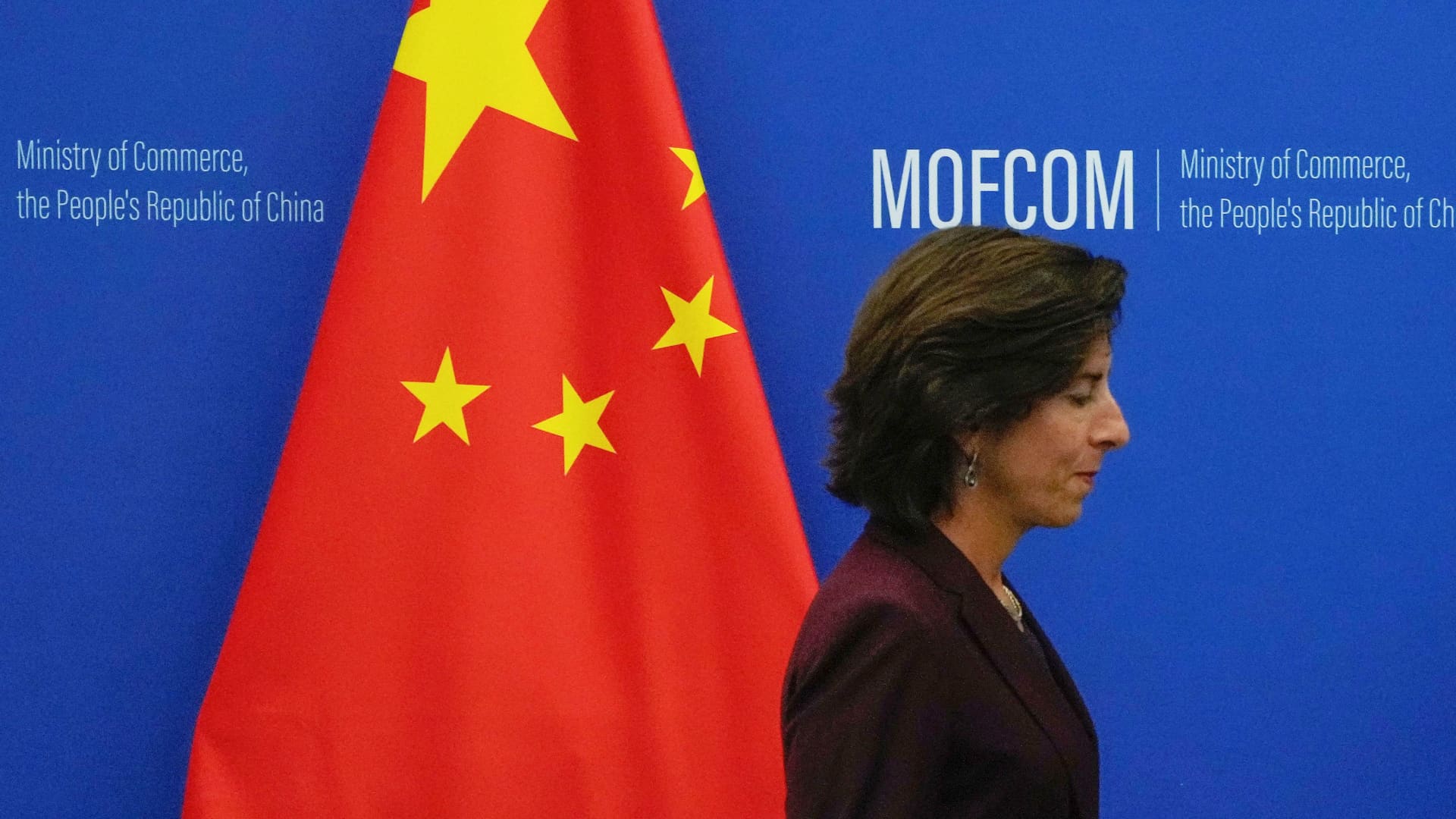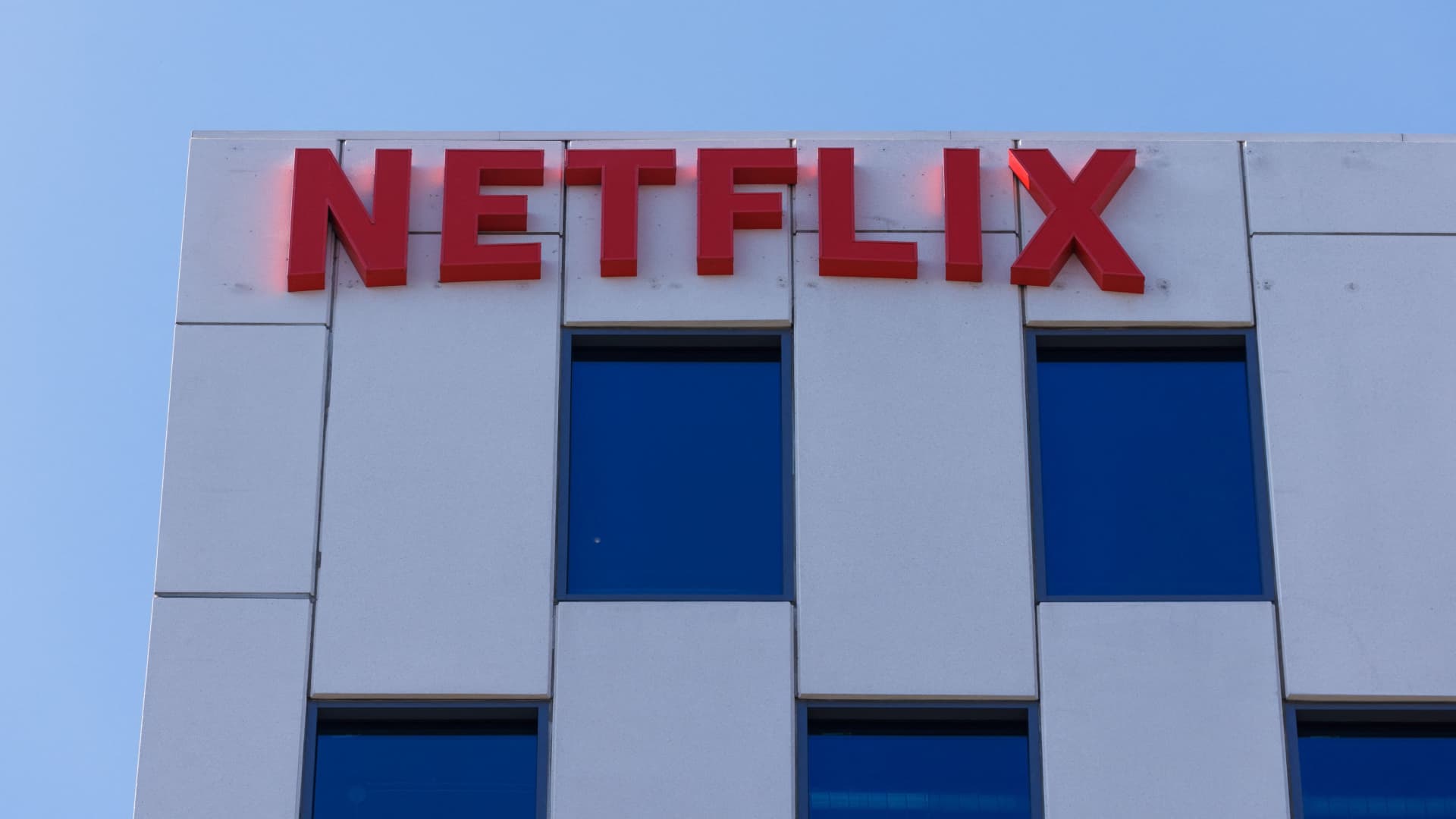U.S. Commerce Secretary Gina Raimondo says she “didn’t pull any punches” during recent visit to China

U.S. Commerce Secretary Gina Raimondo arrives for a meeting with her Chinese counterpart Wang Wentao, at the Ministry of Commerce in Beijing, Monday, Aug. 28, 2023.
Andy Wong | Pool | via Reuters
U.S. Commerce Secretary Gina Raimondo met with Chinese officials in a high-stakes visit to Beijing and Shanghai this week, and she said Sunday that the trip helped establish open lines of communication between the two nations.
Raimondo is the fourth high-level U.S. official to visit China this summer, but she is the first U.S. Commerce secretary to travel to the country in five years — a period where the bilateral relationship has grown increasingly tense.
“We are in a fierce competition with China at every level, and anyone who tells you differently is naive,” Raimondo told NBC’s “Meet the Press” Sunday. “All of that being said, we need to manage this competition. Conflict is in no one’s interest.”
Raimondo said that a lack of communication between the U.S. and China could further escalate tensions and lead to misunderstandings, so structured discussions are key for addressing commercial issues that arise.
The Commerce secretary’s trip to China followed recent visits from U.S. special envoy for climate John Kerry, U.S. Treasury Secretary Janet Yellen and U.S. Secretary of State Antony Blinken. But Raimondo’s visit was called into question after Chinese hackers breached her emails earlier this summer.
“They did hack me, which was unappreciated, to say the least. I brought it up clearly, put it right on the table,” she said Sunday. “Didn’t pull any punches.”
Raimondo also brought up concerns regarding national security, U.S. labor and U.S. business, she said.
In the fall of 2022, the U.S. Department of Commerce’s Bureau of Industry and Security announced new export controls that limited the ability of Chinese businesses to buy certain advanced semiconductors from American suppliers.
Raimondo said Sunday that the export controls are about national security, not about gaining an economic advantage. She added that the U.S. will remain as hard-line as possible with its most advanced technology.
“We are not going to sell the most sophisticated American chips to China that they want for their military capacity,” Raimondo said. “But I do want to be clear, we will also still continue to sell billions of dollars of chips a year to China, because the vast majority of chips that are made are not the leading edge, cutting edge that I’m talking about.”
She said though the export controls reflect a nuanced and complex policy, selling certain chips to China will ultimately generate revenue for American businesses to invest in further research and development.




